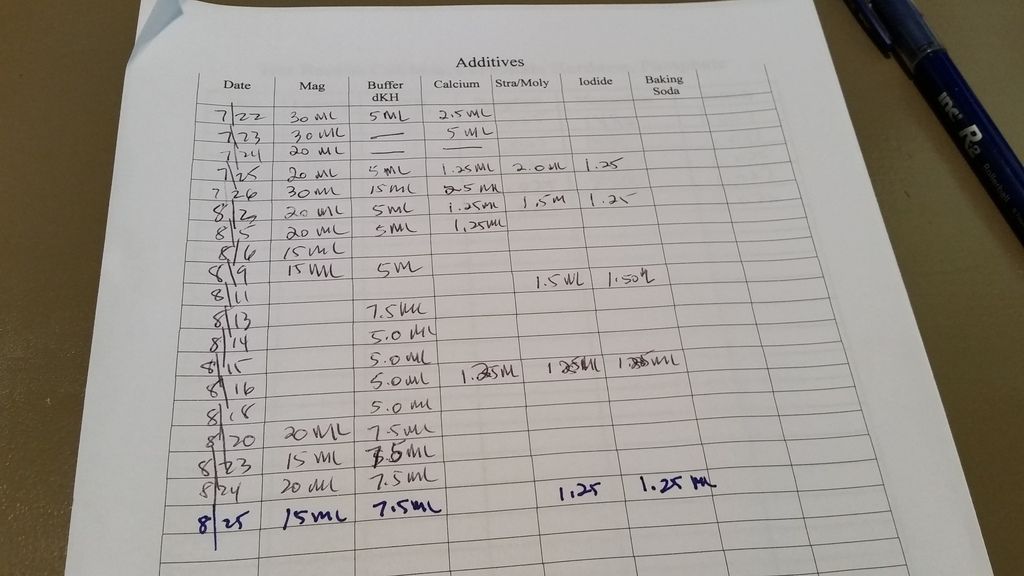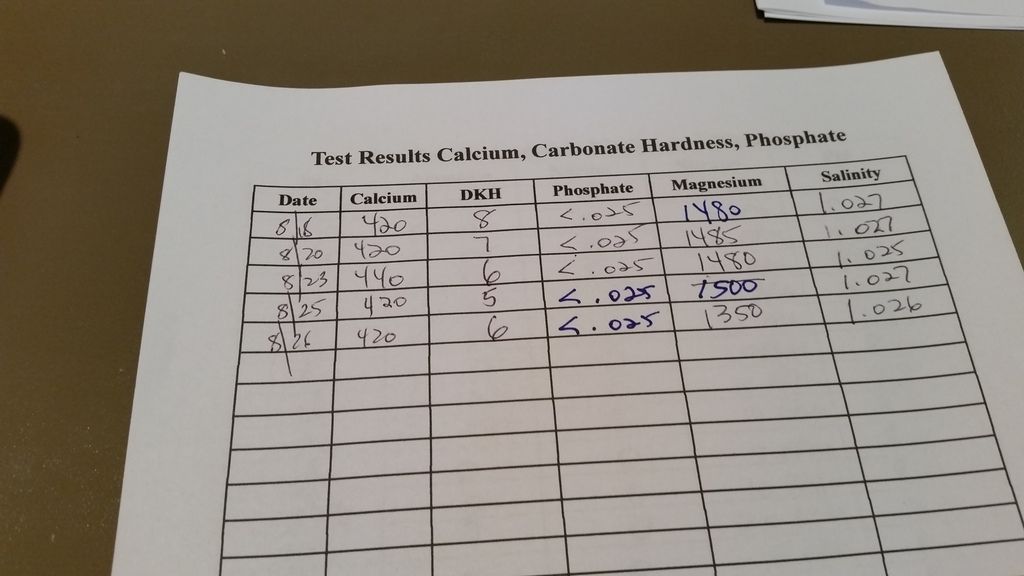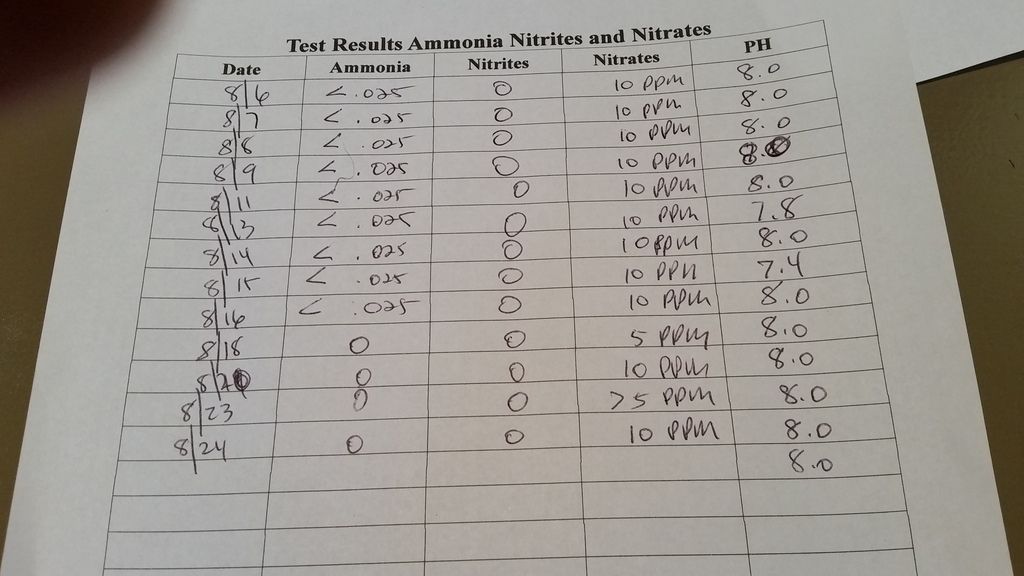Luvthekeys
Member
Okay I can come close to doing that. However I am about to head out for a treatment. I will try to do that this afternoon or early tonight. there may be one day gaps when I did not test but I think you will get the idea. I wish I could make a chart per se but up till now I have just entered it day by day. when I try to do a chart by using tabs it never stays even. Again thanks all for taking the time to help with my problem.
Bang Guy is there a problem with the water i am using? It seemed the best choice of bottled waters at the supermarket. For a small tank I could not see the expense of adding a RO system.
Bang Guy is there a problem with the water i am using? It seemed the best choice of bottled waters at the supermarket. For a small tank I could not see the expense of adding a RO system.



